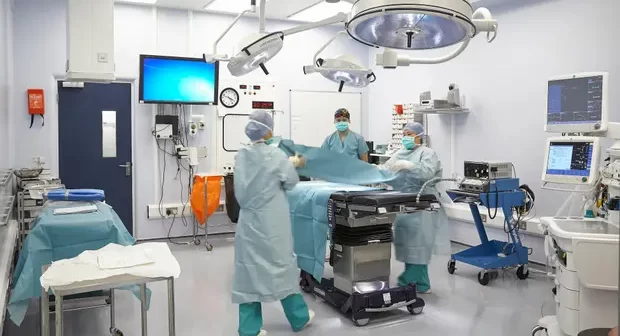Patients waiting for surgery and cancer care in England will face long delays for years to come, MPs have warned in a new report that is highly critical of both ministers and NHS bosses.
The already-record 6.1 million-strong waiting list for vital treatment will keep growing and officials are “too optimistic” that plans to tackle it will succeed, the public accounts committee (PAC) said in a report on Wednesday.
“For the next few years it is likely that waiting time performance for cancer and elective care will remain poor and the waiting list for elective care will continue to grow,” it said.
The committee of MPs, which monitors spending across Whitehall, acknowledges Covid-19’s role in contributing to the ballooning backlog and lengthening waiting times. But it singled out years of inaction by the Department of Health and Social Care (DHSC) for particular blame.
“DHSC has overseen a long-term decline in elective and critical cancer care that is dragging our National Health Service and the heroic staff down,” said Dame Meg Hillier, the chair of the cross-party committee.
The MPs also doubt that the extra £8bn Boris Johnson has given NHS England (NHSE) for 2022-2025, the recent “elective recovery plan” or the pledge that hospitals will increase by 30% the number of operations they perform by 2025 – the three key steps being taken to tackle the backlog – will have any meaningful impact on it.
“We on [the]PAC are now extremely concerned that there is no real plan to turn a large cash injection, for elective care and capital costs of dangerously crumbling facilities, into better outcomes for people waiting for life-saving or quality of life improving treatment”, added Hillier.
Despite the £8bn boost, the DHSC and NHS England “have not set out in meaningful detail what the money will be spent on”, the report said.
The NHS will be less able to execute its ambitious plans to improve waiting times unless “longstanding workforce issues” are fixed, it adds.
The MPs also warn that:
- Large numbers of people waiting a long time for care “presents a huge risk” to GPs, A&E units and ambulance services
- Persistently long delays for care could increase public dissatisfaction with the NHS
- NHSE’s plan to create 566 more hospital beds is inadequate, given the scale of demand
In an apparent aside at Sajid Javid, the health secretary, who is pushing ahead with a reorganisation of the NHS and claimed that poor leadership in it has contributed to long delays, Hillier added that “the cycle of glib headlines and fiddling with management structures must be broken” and replaced with a proper plan to end the service’s staffing crisis.
Johnson has cited the backlog as a key reason for raising national insurance by 1.25 percentage points from 1 April to yield an extra £12bn a year to put into the NHS and social care.
A DHSC spokesperson said: “The pandemic has put unprecedented pressures on healthcare and we are tackling this head on.
“We have set out our action plan to deal with the Covid backlog and deliver long-term recovery and reform, backed by a record multibillion-pound investment over the next three years, and our Ten-Year Plan on cancer.”
New surgical hubs and community diagnostic hubs will help reduce waiting times by providing an extra 9m scans, checks and procedures a year by 2025 for conditions such as cancer, they added.
Source: The Guardian

